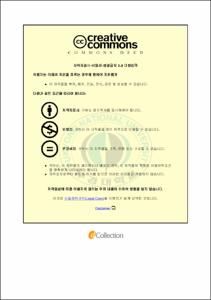호텔종사원의 지각된 고객무례가 조직성과에 미치는 영향: 감정소진의 매개효과를 중심으로
- Alternative Title
- The Impact of Perceived Customer Incivility on Organizational Outcomes in the Hotel Industry: Focused on Mediated Effects of Emotional Exhaustion
- Abstract
- Abstract
Recently customer incivility has been posed as a severe problem in the service sector (airlines, hotels, travel agencies, etc.) and attracted social concern. The incivility of customers make the employees feel humiliated and insulted, reducing morale in working. Several executives of major companies have caused social controversy by forcing service employees to do excessive service.
As the share of the service sector and the occupation of hotel industry in the sector are on the increase due to changes in industrial structure of Korea, emotional exhaustion by customer incivility in customer-contacting departments has substantially affected job satisfaction and outcomes of organization. The purpose of this study is to analyze effects of customer incivility via emotional exhaustion on organizational outcomes(job performance, job satisfaction, and turnover intention). In particular, effects and severity of emotional exhaustion by customer incivility experienced by hotel employees are verified to find out methods of minimizing emotional exhaustion, suggestions that may be helpful to enhance efficiency of managing human resources of hotel employees and managerial competitiveness of enterprises.
In addition, this study analyzes effects of emotional exhaustion on organizational outcomes(job performance, job satisfaction, and turnover intention) to present suggestions in hotel personnel management including efficient job measures, reduction in unnecessary cost in hiring new personnel, retention skilled personnel for securing competitiveness in service, and importance of hotel personnel management.
Key words : Customer incivility, Emotional exhaustion, Organizational outcomes(job performance, job satisfaction, turnover intention)
- Issued Date
- 2014
- Awarded Date
- 2014. 2
- Type
- Dissertation
- Publisher
- 부경대학교
- Alternative Author(s)
- Jung, Seo Yi
- Affiliation
- 경영대학원
- Department
- 경영대학원 경영학과경영학전공
- Advisor
- 전재균
- Table Of Contents
- 제 1 장 서 론 1
제 1 절 연구의 배경 1
제 2 절 연구의 목적 3
제 2 장 이론적 배경 4
제 1 절 고객무례 4
제 2 절 감정소진 5
제 3 절 조직성과 7
1. 직무성과 7
2. 직무만족 8
3. 이직의도 10
제 3 장 연구 모형 및 연구가설 12
제 1 절 연구 모형 12
제 2 절 연구가설의 설정 13
1. 지각된 고객무례가 감정소진에 미치는 영향 13
2. 감정소진이 직무성과에 미치는 영향 15
3. 감정소진이 직무만족에 미치는 영향 16
4. 감정소진이 이직의도에 미치는 영향 18
제 4 장 연구 방법 20
제 1 절 자료 수집 20
제 2 절 변수의 측정 20
제 5 장 실증분석 23
제 1 절 표본의 특성 23
제 2 절 신뢰성과 타당성 분석 24
제 3 절 가설검증결과 27
제 6 장 결론 30
제 1 절 연구의 요약 및 시사점 30
제 2 절 연구의 한계점 및 향후 연구방향 34
참 고 문 헌 35
설 문 지 45
- Degree
- Master
- Appears in Collections:
- 경영대학원 > 경영학과-경영학전공
- Files in This Item:
-
-
Download
 호텔종사원의 지각된 고객무례가 조직성과에 미치는 영향: 감정소진의 매개효과를 중심으로.pdf
기타 데이터 / 795.53 kB / Adobe PDF
호텔종사원의 지각된 고객무례가 조직성과에 미치는 영향: 감정소진의 매개효과를 중심으로.pdf
기타 데이터 / 795.53 kB / Adobe PDF
-
Items in Repository are protected by copyright, with all rights reserved, unless otherwise indicated.